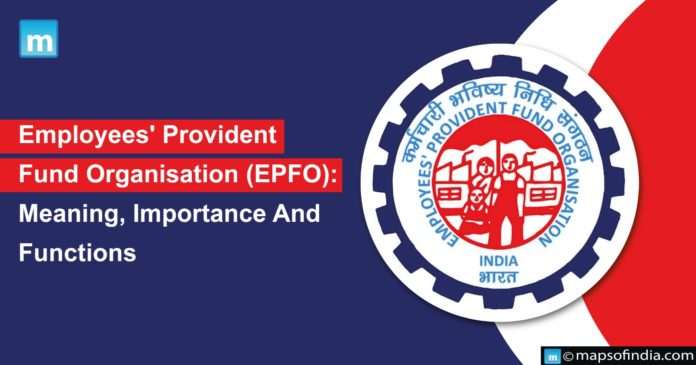The Employees’ Provident Fund Organisation (EPFO) is an Indian government-run institution that administers the Employees’ Provident Fund (EPF), a retiree savings plan for salaried workers. The EPF is an obligatory savings plan for employees earning less than a specific amount and is often funded by both the employer and the employee. The EPFO oversees the funds deposited in a range of corporate and government securities and other assets.
The Employees’ Provident Funds and Miscellaneous Provisions Act of 1952 created the EPFO. The organization’s headquarters are in New Delhi, and it maintains regional offices all around the country. The EPFO is controlled by a Central Board of Trustees comprised of members from the administration and the business sector and is supervised by the Ministry of Labour.
The EPF system is accessible to all salaried individuals earning less than a specific monthly amount, which is presently fixed at INR 15,000 every month. Employees and employers are required to contribute to the plan, with the employee donating 12% of their income and the company investing an equal amount. The company matches the employee’s contributions, and both are placed into the employee’s EPF account. When the employee retires or under specific conditions, such as joblessness or purchasing a home, they can withdraw the amount from their account.
Functions of EPFO
The EPFO also manages several other programmes, including the Employees’ Pension Scheme (EPS) and the Employee Deposit Linked Insurance Scheme (EDLIS). When qualified personnel retires, the EPS offers a pension, whereas the EDLI provides insurance coverage in the event of permanent disability or death.
The EPFO provides numerous services to its customers and operates the EPF, EPS, and EDLI schemes. These comprise web access to EPF banking information, online claim filing, and online complaint status tracking. The EPFO has also implemented many initiatives to make it simpler for customers to retrieve their funds, such as the ability to withdraw payments through an ATM-like system. Employers who do not comply with both acts might face fines and penalties.
The EPFO is a vital agency in India since it ensures that paid employees have adequate retirement savings. The EPF, EPS, and EDLI plans are all intended to offer economic stability to employees throughout their retirement period, and the EPFO is responsible for their administration. Employees may access their money when needed, thanks to the organization’s efforts to provide easy and quick access to EPF funds.
Importance of EPFO
One of the most significant benefits of participating in the EPF system is that contributions are tax deductible under Section 80C of the Income Tax Act. This implies that an employee may claim a tax deduction for the 12% of their income they put into their Provident fund, up to a limit of INR 1.5 lakhs.
Under some situations, the EPFO also allows you to withdraw the whole amount of your EPF balance before retirement. If an employee is out of work for more than two months, they can access their whole EPF amount.




